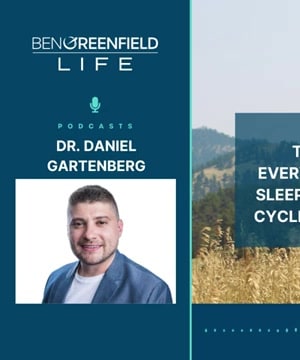Recommendations for someone who wakes up in the middle of the night
Sources:
If you wake up in the middle of the night, here are some expert recommendations to help you get back to sleep:
-
Manage Light Exposure:
-
Relax and Shift Your Mindset:
-
Behavioral Adjustments:
-
Addressing Anxiety and Tasks:
-
Non-Sleep Deep Rest (NSDR):
- Techniques like NSDR can be very beneficial if you can't fall back asleep. These methods help relax your mind and body without the pressure of needing to sleep immediately 9.
Key Experts and Podcasts:
- on the
- and on
- on the
By following these expert suggestions, you can create a more conducive environment for returning to sleep and reduce the frustration often associated with middle-of-the-night awakenings.
RELATED QUESTIONS-
Is white noise bad for sleep
Sources:
White noise's impact on sleep varies and is context-dependent. Here are some insights from experts:
-
Equivocal Data:
-
Potential Costs and Benefits:
- Experimenting with white noise isn't necessarily harmful for adults if kept at moderate volume. Benefits include consistent background noise that reduces the impact of sudden disruptions 3 4.
- However, continuous exposure to white noise may not be natural and could affect the auditory system's development in infants. More research is needed to definitively understand the long-term impacts, especially on young children 5 1.
-
Alternatives to White Noise:
-
Personal Preference:
- Using white noise is highly individual. Some people find it essential for drowning out disturbances, while others might perceive it as interrupting their sleep cycle 6.
In summary, white noise is neither universally beneficial nor harmful for sleep. Its usefulness depends on individual circumstances and environment. For those curious, experimenting with different types of sleep aids, including other sound types or even earplugs, might be worth trying to see what works best.
RELATED QUESTIONS-





